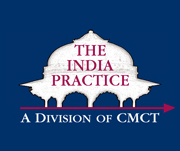When high-tech employees and managers from India, the US and other cultural backgrounds are thrown together in the intense environment of Silicon Valley, they often bring with them divergent expectations about workplace success factors, rewards and career development as well as differences in motivational "wiring."
Understanding these differences and adapting appropriately can be a key strategy for managers and employees alike. Failure to do so can lead to costly misunderstandings.
Five major differences in the following areas create the greatest challenges: management styles, job security and compensation structures, career development, performance evaluation, and motivational strategies.
Management styles
American employees react well to a boss who is friendly and professional with them, treats them as equals, and expects them to be independent and self-motivated. Managers and employees do not expect the boss-subordinate relationship to be strongly hierarchical, or to be one of strongly committed personal loyalty: it is all about mutual respect. This can create a mismatch for employees from India, for whom a more quasi-paternal relationship is more the norm.
Job security and compensation structures
The US has been through a workplace revolution in which expectations of job security with a lifetime employer has been replaced by loyalty to one's career and the attempt to maximize one's earnings. This results in a common acceptance of modest a base salary but a high bonus-earning potential. A common complaint I have heard from Silicon Valley employers has been about the discomfort of their employees from India with such an arrangement, with a strong preference for security over higher-stake risk.
Career development
A very common American manager's question to an employee is: "What are your career plans?" This question, which embodies the mutual expectation that employees take independent responsibility for their professional advancement, runs counter to the expectations of work cultures in many other countries, including India, where the expectation is that it is the boss's responsibility to look out for and decide on an employee's future.
Performance evaluation
The performance evaluation process of US companies today is a major culture shock for employees and managers from elsewhere. Highly formalized, it is based on mutually agreed-upon goals, involves forthright discussion of strengths and weaknesses, and has a formal written sign-off. Elsewhere, there may be informally conducted reviews with mentoring counsel, or a pattern of reprimands. The cultural problems of adaptation on all sides are considerable: the American way seems confrontational and legalistic to others, Americans feel insecure with methods that have less clarity.
Motivational strategies
When it comes to motivation, no one strategy works for everyone - even within one culture. Across cultures, it's even more difficult. With Americans, a manager shouldn't expect much from appeals to duty, authority, company loyalty, group rewards or regular after-work socializing. Instead, he or she should emphasize opportunities for personal growth and monetary gain. With employees from India, personal loyalty, company prestige and appeal to authority can be effective, but above all, the manager should cultivate a certain "human touch" in relating to the needs of subordinates, as their guide and friend as well as their boss.
© Karine Schomer. All Rights Reserved. Originally published in Siliconindia. Permission to reprint is granted, provided the article and byline are printed intact, with all links visible and made live if distributed in electronic form.
Karine Schomer, PhD is President of Change Management Consulting & Training, LLC, and leads The CMCT India Practice, specializing in cross-cultural training and management consulting for doing business with India, competitive advantage through cross-cultural awareness, business etiquette and protocols, cross-cultural communication and teamwork skills, outsourcing management best practices, and offshore team leadership strategies. For more learning resources, check The Working and Managing Across Cultures Blog.



